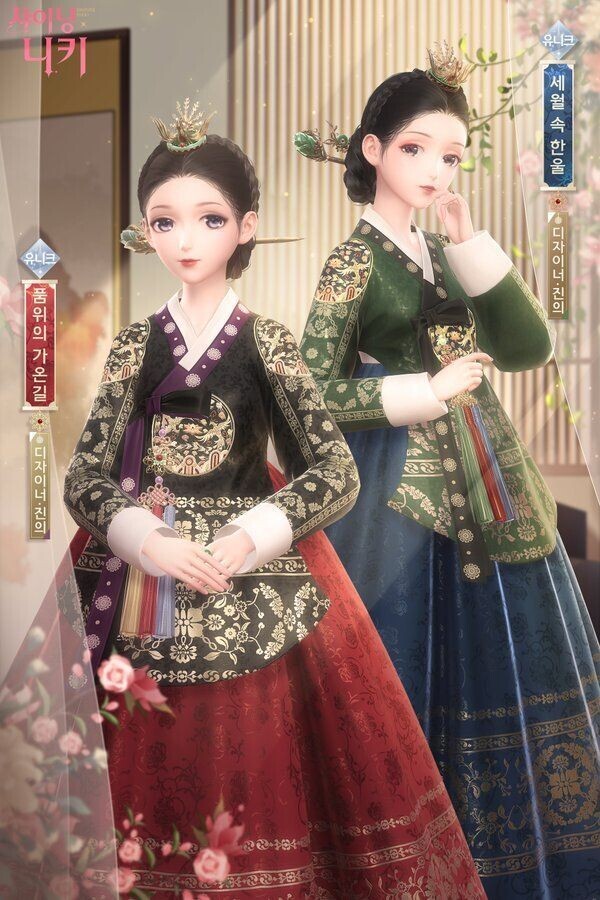hankyoreh
Links to other country sites 다른 나라 사이트 링크
[Column] What happens when China throws its capital into the Korean game market

Since its infancy, the culture industry has been a venue of propaganda. For example, all the wars and ideological rivalry of the 20th century would be a pallid affair if films were subtracted from the equation.
The film “Battleship Potemkin,” considered one of cinema’s earliest masterpieces, was made on the 20th anniversary of the 1905 Russian Revolution. Germany’s Nazi Party introduced the world’s first television broadcasts to bring images of Hitler to the masses. And the spectacles of Hollywood contributed as much to the US’ rise as a superpower as its military or economic might.
That’s because the culture industry is ultimately “show business” — literally, the business of showing. Casually filmed scenes of everyday life can, in a certain context, become a propagandistic tool scarier than a hundred volumes.
The aesthetics of propaganda and rabble-rousing have gradually grown more sophisticated, especially during the course of the Cold War. They’ve given imperialists and oppressors a tool for promoting their systems and flaunting their power, and they’ve given their opponents a method of resistance, a way to spread the truth and appeal to the conscience of the public.
But in all these fights, the ultimate victory has been capitalism. Earnest questions, political ambitions, cries of resistance, and flight from capitalism itself or even outright rebellion against it — they’ve all ultimately been subsumed into capitalism. That’s because capitalism is capable of encompassing nearly everything, with only one condition: that it sells.
Money is also at the heart of the immense influence China has recently wielded in the global game industry. China represents the world’s biggest market, and it’s also where some of the world’s corporate gaming behemoths — such as Tencent and NetEase — hold court.
Gaming is an industry that costs more than many would expect. That’s why we shouldn’t write off China either in terms of game development or game sales.
On top of that, China is no longer merely a country of consumers, but of producers, with a considerable talent for development. Although South Korea prides itself on being a “gaming power,” Chinese-made games have been rampaging through Korea’s market for quite some time.
But China’s clout has recently faced some challenges, including negative reactions to the Chinese government’s attempt to extend its censorship beyond its borders through the power of capital. Beijing has responded to expressions of support for the demonstrations in Hong Kong with retaliatory trade measures, and it has overreacted to depictions of Chinese President Xi Jinping that are or appear to be negative.
To be sure, the Chinese government system and the culture industry are bound to have a peculiar relationship. The culture industry today is a competition within capitalism, and one of the central principles of that competition is a tolerant embrace of anything that sells.
But that’s a principle that the Chinese system is loath to fully accept. The patriotic onslaught of Chinese gamers and netizens is adding to a conflict that grows sharper every day. Only capital still opens its arms in welcome to China, where money still talks.
It would be rash to draw any conclusions about the outcome of this “culture war.” The only thing that can be said that culture always involves more than meets the eyes.
By Choi Tae-seob, sociologist
Please direct comments or questions to [english@hani.co.kr]

Editorial・opinion
![[Guest essay] Maybe Korea’s rapid population decline is an opportunity, not a crisis [Guest essay] Maybe Korea’s rapid population decline is an opportunity, not a crisis](https://flexible.img.hani.co.kr/flexible/normal/500/300/imgdb/original/2024/0430/9417144634983596.jpg) [Guest essay] Maybe Korea’s rapid population decline is an opportunity, not a crisis
[Guest essay] Maybe Korea’s rapid population decline is an opportunity, not a crisis![[Column] Can Yoon steer diplomacy with Russia, China back on track? [Column] Can Yoon steer diplomacy with Russia, China back on track?](https://flexible.img.hani.co.kr/flexible/normal/500/300/imgdb/original/2024/0430/1617144616798244.jpg) [Column] Can Yoon steer diplomacy with Russia, China back on track?
[Column] Can Yoon steer diplomacy with Russia, China back on track?- [Column] Season 2 of special prosecutor probe may be coming to Korea soon
- [Column] Park Geun-hye déjà vu in Yoon Suk-yeol
- [Editorial] New weight of N. Korea’s nuclear threats makes dialogue all the more urgent
- [Guest essay] The real reason Korea’s new right wants to dub Rhee a founding father
- [Column] ‘Choson’: Is it time we start referring to N. Korea in its own terms?
- [Editorial] Japan’s rewriting of history with Korea has gone too far
- [Column] The president’s questionable capacity for dialogue
- [Column] Are chaebol firms just pizza pies for families to divvy up as they please?
Most viewed articles
- 1Dermatology, plastic surgery drove record medical tourism to Korea in 2023
- 2Under conservative chief, Korea’s TRC brands teenage wartime massacre victims as traitors
- 3[Guest essay] Maybe Korea’s rapid population decline is an opportunity, not a crisis
- 4[Column] Can Yoon steer diplomacy with Russia, China back on track?
- 5First meeting between Yoon, Lee in 2 years ends without compromise or agreement
- 6Thursday to mark start of resignations by senior doctors amid standoff with government
- 7Months and months of overdue wages are pushing migrant workers in Korea into debt
- 8Noting shared ‘values,’ Korea hints at passport-free travel with Japan
- 946% of cases of violence against women in Korea perpetrated by intimate partner, study finds
- 10AI is catching up with humans at a ‘shocking’ rate